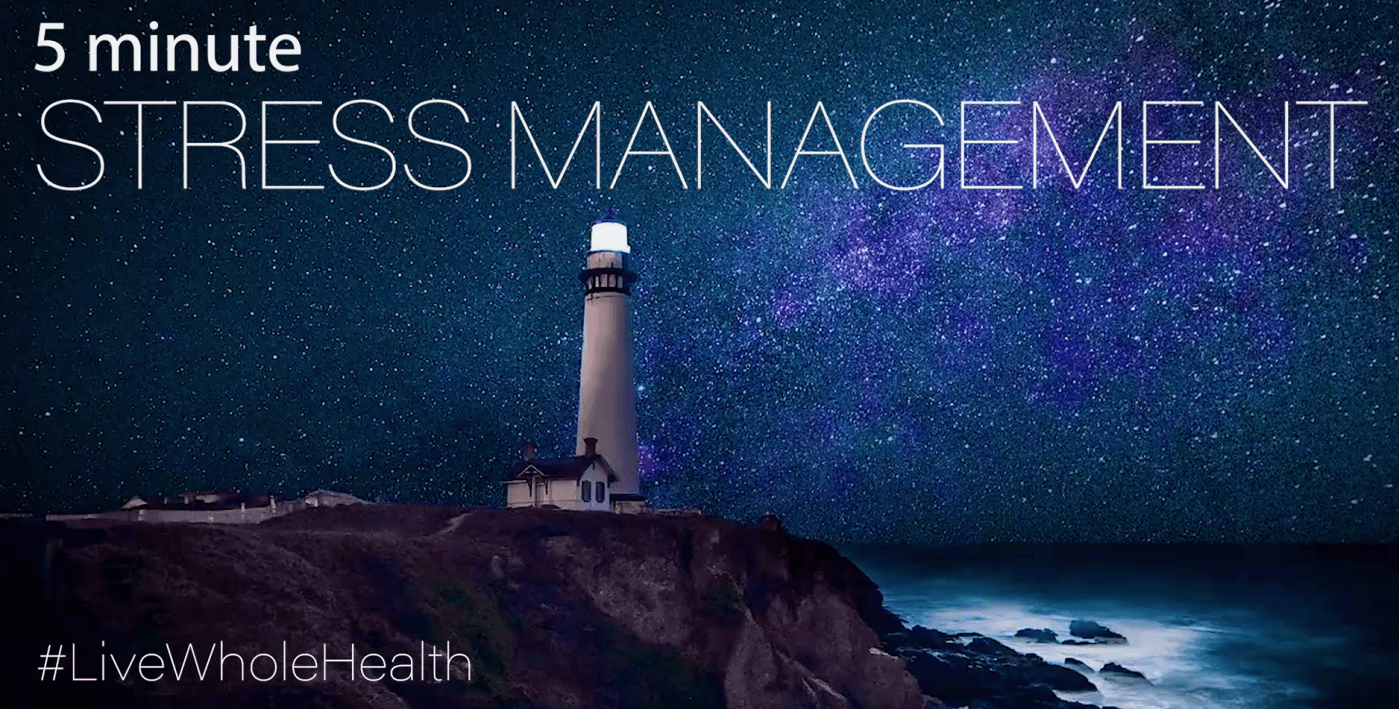Stress plays an important part in our day to day life. Left unchecked, it can affect our ability to feel balanced, both mentally and physically. Allowing yourself space and time to recognize and release those feelings of excess stress is an important part of self-care.
When the body is in overdrive all the time from stress, health issues can arise. Those issues can include insomnia, fatigue and headaches. And those issues can sometimes contribute to lifestyle and behavioral choices, such as tobacco use, poor food choices, and less physical activity to cope with those feelings. Learning how to deal with heightened stress can be beneficial in the long run.
Managing stressful reactions can feel empowering. If you can name what emotions or symptoms you are feeling, and be kind to yourself in recognizing that these are normal reactions, then you can begin working on releasing that stress to stay more balanced throughout the day.
In this exercise with Dr. Eric Dinenberg, learn how to relax by naming the emotions behind your stress. Those emotions might be worry, fear, anger, sadness, or feeling overwhelmed or exhausted. Taking time to acknowledge those emotions can greatly help to put things in perspective.
There are many options for relieving stress. Self-care is not something you have to figure out on your own. Whole Health can offer you the support you need to get started. Explore the Circle of Health to find the self-care resources you need for a healthier life: https://www.va.gov/WHOLEHEALTH/circle-of-health/index.asp
More information
If you are a Veteran in crisis or concerned about one, connect with our caring, qualified responders for confidential help. Many of them are Veterans themselves.
- Call 1-800-273-8255 and press 1
- Text 838255
- Start a confidential chat
- Call TTY if you have hearing loss 1-800-799-4889
- Get more resources at VeteransCrisisLine.net.
Kavitha Reddy, MD FACEP ABoIM, is the associate director for Employee Whole Health in the VHA Office of Patient-Centered Care and Cultural Transformation.
Topics in this story
More Stories
Army Veteran Jeffery Williams' journey is a testament to resilience, perseverance and the power of innovation in transforming lives.
VA’s latest data shows a decrease in the suicide rate among women Veterans, but more effective interventions and support systems are needed.
Making healthy choices about what you eat and drink is a powerful way to care for yourself. You need the right fuel to feel well and have the energy to do what matters most to you.





